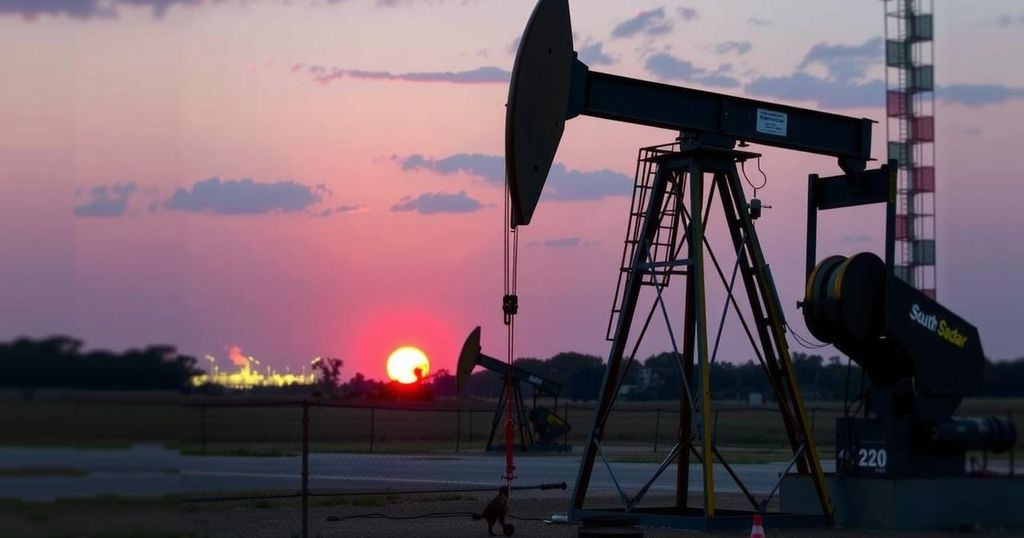South Sudan plans to resume oil production with a target of 90,000 barrels per day following the lifting of a sales ban due to conflict in Sudan. Oil, which constitutes 90% of the nation’s GDP, is critical for economic survival. Citizens, however, face health challenges from reliance on fossil fuels, drawing attention to the complexities of energy policy in the region.
This week, South Sudan revealed its plans to resume oil production, aiming for a target of at least 90,000 barrels per day as it returns to normalcy in its oil sector. This decision follows an eleven-month hiatus in sales to international markets, triggered by a conflict in Sudan that forced the invocation of a force majeure clause. The lifting of the ban on January 4 has paved the way for South Sudan to reactivate its oil extraction operations, which are vital to its economy, contributing 90% of the nation’s gross domestic product (GDP).
Minister of Petroleum Puot Kang Chol announced that production would officially commence on January 8, 2025, stating, “With the force majeure having been officially lifted by the government of Sudan, through its letter dated the 4th 2025… the kickoff date of resumption is tomorrow.” Chol expressed confidence in South Sudan’s capabilities to consistently supply oil to the global market, despite the increasing global momentum toward renewable energy sources, emphasizing, “We will continue to produce. … South Sudan… will continue to use oil resources for its own survival.”
Amid these developments, citizens like Betty Yobu in Juba are facing health challenges linked to prolonged exposure to smoke and gases from charcoal use, highlighting the domestic ramifications of reliance on fossil fuels. Yobu’s health has deteriorated from chronic exposure to carbon monoxide, which underscores the complex relationship between energy needs and public health in South Sudan.
Chol defended the continued use of oil, noting the immediate economic realities faced by South Sudan. He remarked, “We are faced with the reality, and the reality is, ‘I go hungry, have no food, I will die.’ … the only resource that you have that can allow you health care is the oil resources. We will not abandon it, because death is death.” Despite past controversies, including accusations regarding the environmental practices of oil companies in the region, the South Sudanese government remains optimistic that the resumption of oil production will ease financial burdens for both South Sudan and its neighbor, Sudan.
Ranked third in sub-Saharan Africa in terms of oil reserves, South Sudan’s potential production of approximately 3.5 billion barrels annually remains critical for its economic sustainability. As the nation navigates the complexities of balancing resource extraction and environmental health, it stands at a crossroads determining its reliance on fossil fuels in a changing global landscape.
South Sudan’s oil sector is a significant contributor to its economy, accounting for the majority of its GDP. However, recent conflicts in Sudan disrupted oil exports, causing South Sudan to halt sales for nearly a year. Following the lifting of a force majeure clause by Sudan, South Sudan can now restart its oil production, which is crucial for both economic and social well-being, especially in providing essential services and healthcare access. The strategy aligns with the country’s dire economic needs, while also attracting criticism from environmental advocates regarding the implications of continued fossil fuel dependency.
In summary, South Sudan is set to resume oil production, targeting 90,000 barrels per day, in response to lifting international sales restrictions after prolonged conflict in Sudan. The government’s decision is rooted in economic necessity, despite the pressing health and environmental concerns. As the nation re-engages with the global oil market, it faces significant challenges in reconciling its energy policies with sustainability and public health, while remaining a critical player in the sub-Saharan oil landscape.
Original Source: www.voanews.com






